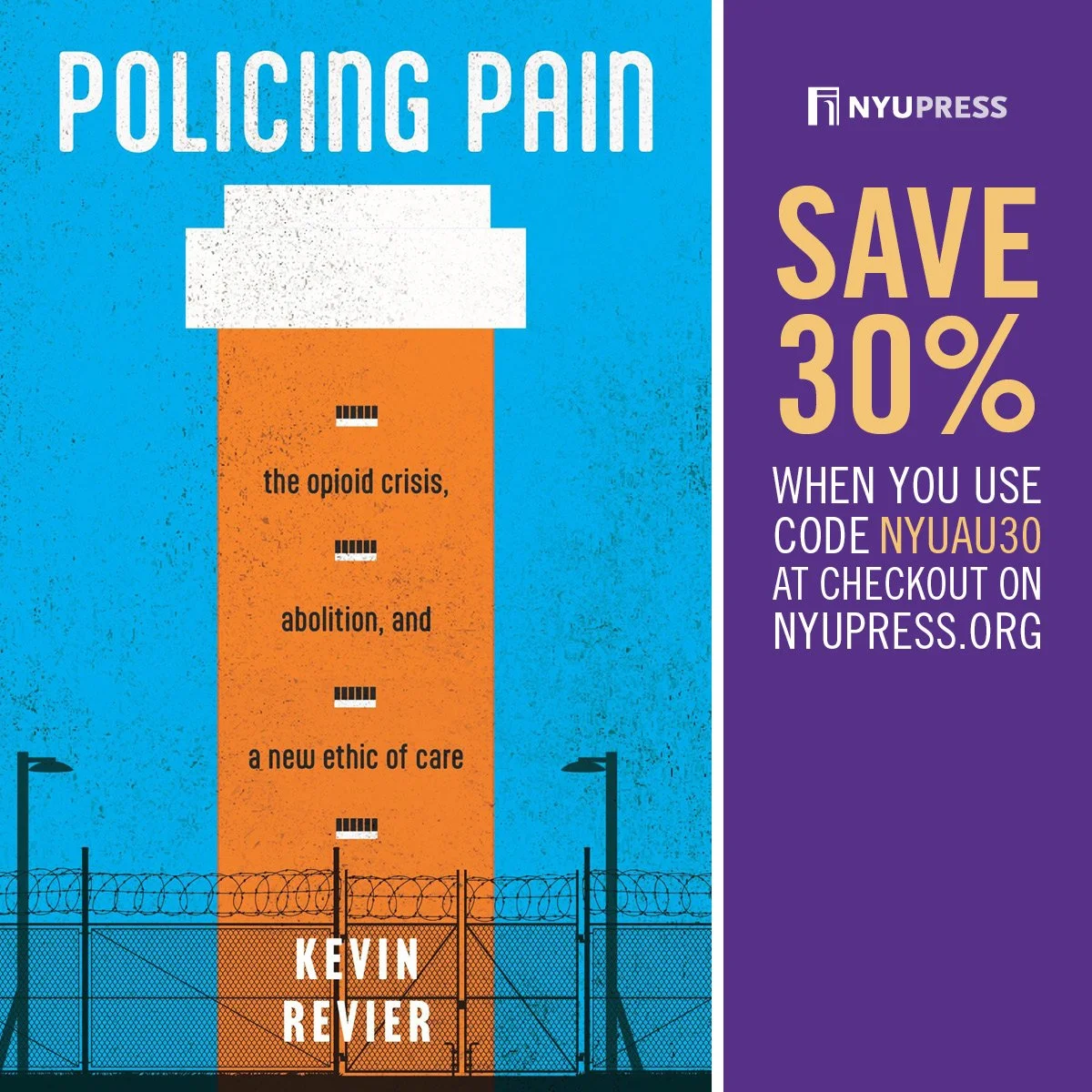Policing Pain: The Opioid Crisis, Abolition, and a New Ethic of Care
In Policing Pain: The Opioid Crisis, Abolition, and a New Ethic of Care, I explore localized opioid crisis, mass incarceration, and policing. I spent two years of fieldwork in the Southern Tier of New York (from 2017-2019), a region impacted by job loss, deindustrialization, and staggering opioid overdose death.
I argue that, while public officials argued, “We can’t arrest our way out of this,” and have supported criminal justice-based treatment services, including police-, court-, and jail-based treatment, such services have expanded the scope of the criminal justice system. Narcan-carrying police act as first responders when an overdose occurs; judges work with treatment providers to monitor defendants in criminal court; and correctional officers are trained as caring healthcare providers. This criminalizes people who use drugs, imagining them as treatable carceral subjects. Correspondingly, localized images of racialized “Black dealer” persist, driving police power for drug selling.
The incorporation of medical rhetoric and treatment within the criminal legal system, therefore, maintains drug war in rural and low-income areas facing high rates of opioid overdose as well as economic disinvestment. As ongoing drug war perpetuates state-based violence—including risk of overdose death—Policing Pain promotes harm reduction through abolitionist care that advocates for people who use drugs while seeking to minimize criminal justice involvement in drug-related issues.
Policing Pain will be published in New York University Press’ Alternative Criminology Series.
"Kevin Revier's insightful ethnographic case study combined with an abolitionist epistemology compels us to demand alternatives to incarceration that aren't rooted in treatment modalities that reproduce the logics and practices of punishment and the erasure of structural explanations. He shows in excruciating detail how drug courts and jail treatment programs are part of the problem, not the solution, and lays out a vision for a more just path forward." ~Alex Vitale, author of The End of Policing
"Policing Pain is a bold, nuanced, and incisive chronicle of the perilous contradictions of making cops, judges, prison wardens and guards 'care' for people who use drugs." ~Nancy D. Campbell, author of OD: Naloxone and the Politics of Overdose
"Policing Pain exposes how policing, courts, and jails have absorbed the language of care while upholding racialized control and punishment. Through abolitionist analysis and rich ethnography, Revier reveals how carceral power has adapted, medicalized, and deepened its reach. This is a vital book for anyone seeking to understand the entwined histories of racial capitalism, drug prohibition, and the urgent need for abolitionist care." ~Kerwin Kaye, author of Enforcing Freedom: Drug Courts, Therapeutic Communities, and the Intimacies of the State
"Revier wisely reminds us how carceral societies treat addiction like a problem to be policed, rather than a need for healing justice and harm reduction. Meticulously researched, written with passion and suffused with the author’s vivid abolitionist imagination, Policing Pain makes for compulsory reading for anyone interested in how states arrest their way out of the crises they create and why freedom dreaming and social justice seeking are the only humane response." ~Lambros Fatsis, co-author of Policing the Pandemic: How Public Health Becomes Public Order
"In his intimate portrait of yet another 'drug crisis,' Revier shows that despite reports of its demise, the drug war is indeed alive and well. While attentive to the pain and suffering of those left in the drug war’s wake, Revier charts a hopeful path forward. Not only a vivid account of the present, Policing Pain is essential reading for the crises to come." ~Travis Linnemann, author of The Horror of Police
At the Binghamton Students for Sensible Drug Policy (SSDP) Northeast Regional Conference
At a Purdue Pharma protest in Stamford, with Truth Pharm


